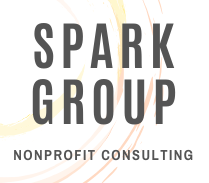Creating a Learning Culture
Written By: Katy Stokes, LLMSW
I once heard a corporate CEO say this to a group of leaders, “If you can’t point to failures in your organization, there is something seriously wrong going on.” He was emphasizing the point that an organization that stops failing, stops learning. Failure is something that many of us are programmed from a young age to be afraid of, but in reality, failure is a necessary component of innovation and growth.
In his book, Developing a Learning Culture in Nonprofit Organizations, Stephen Gill describes the increasingly high expectations that nonprofit organizations face. Maintaining steady funding streams, increasing the rate of measurable results, managing employees, board members, and volunteers, finding solutions for huge social issues; nonprofit leaders are feeling the pressure.
Organizations that cultivate a culture of learning thrive even under this pressure. Innovation and new ideas are welcomed, and failures become stepping stones. A learning culture harnesses the collective knowledge, aspirations, and wisdom of all stakeholders to improve the work environment, increase performance, and achieve long-range goals.
What are some actions of a healthy learning culture?
Encourage Questions
Empower your staff and volunteers to ask questions about their role in the organization and the roles of others. Create a safe environment to wonder aloud about the purpose and quality of the services you provide.
Speak the Unspeakable
Healthy leaders know the importance of naming “the elephant in the room.” Don’t dwell on the negative, but don’t ignore issues just because they are uncomfortable.
Move Past Just Trainings
Individual training and continuing education can provide a wealth of knowledge to an organization. Provide opportunities for staff to share the learning and connections they’ve made with teams or the board.
Invest in the Big Picture
It’s easy to get tied down by short-term problems, but learning organizations make time to invest time, energy, and emotion in long-term planning.
No More Blame Game
Blame is a barrier to healthy learning. Remain calm, explore what happened, wonder together what could have been done differently, and share the organization’s wins and losses as a team.
Set up an initial consultation today for help creating a learning culture in your organization.
⭐ Join our weekly newsletter where we share tons of exclusive tips, tools, grant opportunities, and resources to our subscribers. Subscribe on the Spark Group home page.





